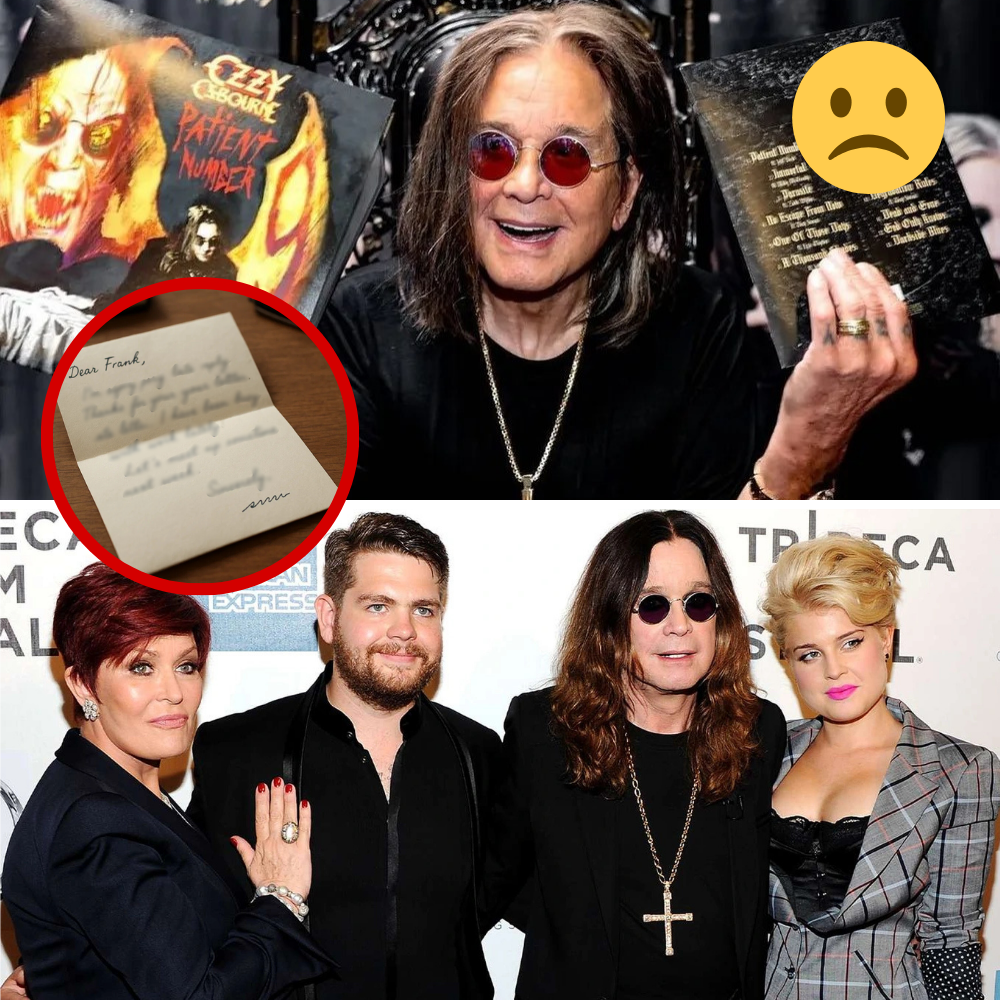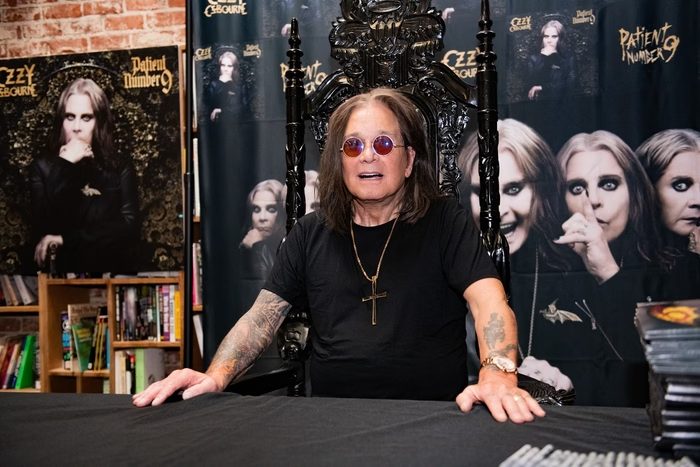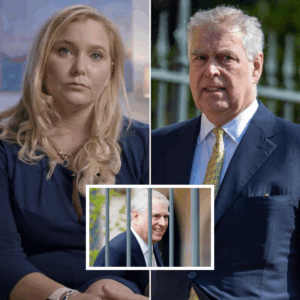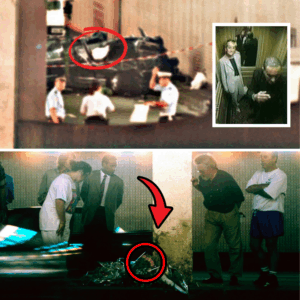
The world of rock music mourns the loss of a titan, Ozzy Osbourne, the Black Sabbath frontman whose raw, electrifying voice and unapologetic persona shaped the heavy metal genre. On July 22, 2025, Osbourne passed away at 76, surrounded by family in his Buckinghamshire home, just weeks after a triumphant final performance with Black Sabbath in his hometown of Birmingham, England. His family announced the news with a poignant statement: “It is with more sadness than mere words can convey that we have to report that our beloved Ozzy Osbourne has passed away this morning. He was with his family and surrounded by love.” Yet, it was a brief, heartfelt letter left behind by the “Prince of Darkness” that has left fans worldwide grappling with grief, a final testament to a man who lived fiercely and loved deeply.
A Final Bow in Birmingham
On July 5, 2025, Osbourne took the stage one last time at Villa Park, Birmingham, for the “Back to the Beginning” concert, a star-studded farewell that reunited him with Black Sabbath bandmates Tony Iommi, Geezer Butler, and Bill Ward. Despite his battle with Parkinson’s disease, diagnosed in 2003, which left him unable to walk, Osbourne performed seated on a bat-adorned throne, his voice as powerful as ever. The concert, which raised $190 million for charity, featured performances by Metallica, Guns N’ Roses, Slayer, and more, celebrating Osbourne’s unparalleled legacy. “You’ve no idea how I feel—thank you from the bottom of my heart,” he told the 42,000 fans, his words echoing with gratitude and finality.
This performance was more than a concert; it was a homecoming for a man born John Michael Osbourne in 1948 in Aston, Birmingham, to a working-class family. Growing up in a cramped two-bedroom home with five siblings, Osbourne faced poverty, dyslexia, and abuse, yet found solace in music. Inspired by The Beatles’ “She Loves You,” he quit school at 15, worked odd jobs, and even served six weeks in prison for burglary before his father gifted him a microphone, sparking his musical journey.
The Birth of Heavy Metal
Osbourne’s defining contribution came with Black Sabbath, formed in 1968 with Iommi, Butler, and Ward. Named after a Boris Karloff horror film, the band’s dark, heavy sound—born from Birmingham’s industrial grit—revolutionized rock music. Albums like Paranoid (1970) and Master of Reality (1971) laid the foundation for heavy metal, with anthems like “Iron Man” and “War Pigs” becoming stadium staples. “We wanted to put how we thought about the world at the time,” Butler once said, capturing the band’s raw, rebellious spirit.

Fired from Black Sabbath in 1979 due to his struggles with addiction, Osbourne reinvented himself as a solo artist. His 1980 debut Blizzard of Ozz, featuring hits like “Crazy Train,” surpassed his former band’s success, selling millions and introducing guitar virtuosos like Randy Rhoads. Over a decades-long solo career, Osbourne released 13 albums, earning five Grammy Awards and a 2024 Rock and Roll Hall of Fame induction as a solo artist, alongside his 2006 induction with Black Sabbath.
A Life of Excess and Redemption
Osbourne’s life was as wild as his music. Infamous for biting the head off a live bat in 1982—mistaking it for a prop—and a dove at a record label meeting, he embraced the “Prince of Darkness” persona with a mix of theatricality and chaos. His battles with drugs and alcohol led to turmoil, including a 1989 attempt to strangle his wife, Sharon, during a drunken episode. Yet, Sharon, whom he married in 1982, remained his rock, managing his career and launching Ozzfest, a festival that ran from 1996 to 2018 and boosted bands like Slipknot and System of a Down.
In the early 2000s, Osbourne became an unlikely reality TV star with The Osbournes, showcasing his chaotic yet loving family life with Sharon and children Kelly and Jack. The show, a cultural phenomenon, revealed a softer side to the rock icon—a “doddering and sweet father,” as one critic noted. Despite controversies, including lawsuits over his song “Suicide Solution,” Osbourne’s resilience shone through, culminating in his 2020 album Ordinary Man and 2022’s Grammy-winning Patient Number 9.
The Final Letter
Osbourne’s final letter, though brief, has struck a chord with fans. Written in his Buckinghamshire home, where he and Sharon fulfilled their dream of returning to England, it reportedly expressed gratitude to his family, bandmates, and fans, with a special note to Sharon, his “soulmate.” While the full contents remain private, its emotional weight has sparked an outpouring of tributes. Elton John called him “a dear friend and a true legend,” while Metallica described him as a “hero, icon, and mentor.” Black Sabbath’s social media simply posted: “Ozzy Forever.”
Conclusion
Ozzy Osbourne’s death marks the end of an era, but his legacy as a pioneer of heavy metal and a cultural icon endures. From the gritty streets of Birmingham to global stardom, he lived a life of extremes—triumphs, scandals, and unwavering passion for music. His final letter, a quiet reflection from a man who roared on stage, reminds us of the heart behind the “Prince of Darkness.” As fans light candles and play “Mama, I’m Coming Home” in his honor, Osbourne’s music and spirit will echo forever, proving, as he once sang, “You can’t kill rock and roll—it’s here to stay.”





